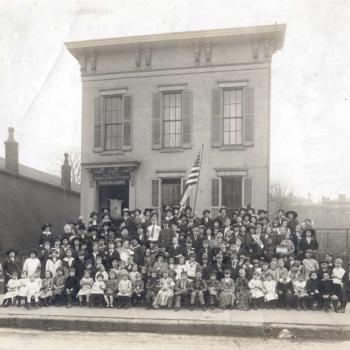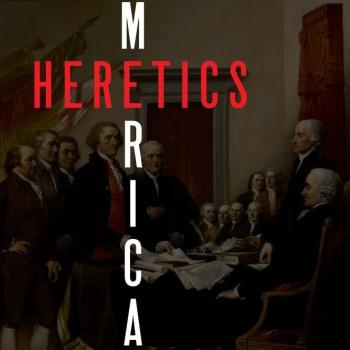If there is one thing that has been drilled into my mind as a historian, it is this: social location matters. A lot.
Before I focused my research on lynching, I was deeply committed to doing work on Calvin and the Greek early church. When I found myself discouraged by the glut of Calvin scholarship, I turned to the next best thing: the Puritans! Along this journey, I became enamored with Protestant confessions, particularly the process that Christians went through to write documents that summarized the faith. The seventeenth century yielded many such documents, but three caught my eye: the 1647 Westminster Confession (henceforth, WCF), the 1658 Savoy Declaration, and the Second London Confession (henceforth, 2LC), also known as the 1689 London Baptist Confession.
When one initially reads these confessions, that person will be struck by their similarities, which are not subtle: the writers of the Savoy Declaration copied wide swaths of the WCF, with some differences, and the writers of 2LC copied Savoy and the 1644 Baptist confession. But their differences are more relevant for our current conversation. What did Presbyterians, Congregationalists, and Baptists say about the relationship between the church and the civil magistrate?
Interestingly, each confession has a chapter on this relationship, and the first two paragraphs in each confession are almost exactly the same, with no more than four words of difference per paragraph among the three confessions. The third paragraph, however, is where things get spicy.
The WCF begins this paragraph by denying the magistrate the privilege to administer the sacraments or to exercise the power of the keys of the kingdom. This is unique to the WCF, likely not because of disagreement but because the prospect of the state taking those privileges has retreated so far in the background that it is largely irrelevant. Interestingly, however, everything that follows in this paragraph is refuted or erased from Savoy and the 2LC. It is even carefully edited in the American version of the WCF. What did these other bodies find so offensive?
The Westminster divines affirm that the magistrate has authority and a duty to enforce peace in the church by suppressing heresy, blasphemy, and corruptions in worship. The magistrate could also, according to Westminster, call synods and make sure that worship and discipline accorded with the Word of God. The careful reader will already know what this assumes about the magistrate: that they have the competence to determine and enforce orthodox Christian doctrine and practice. The WCF divines had a profound trust in governmental authority because, as the text was written in 1647, the very drafting of the document was itself a vying for both ecclesiastical unity and political authority. The initial goal of the confession was to establish itself as the theological standard of the Church of England. The hope was that church and state would be a happy marriage, but the possibility of that marriage was stoked in the minds of the divines by the fact that they were the political majority.
But what about the religious minorities? The Congregationalists who gathered to write the Savoy Declaration were a significant religious minority, but a minority nonetheless. Lacking the political influence of their Presbyterian brothers, they were not as ambitious. In an attempt to write a document that Presbyterians and Congregationalists could agree on, the writers of Savoy edited the WCF’s third paragraph, reading more like a concession than a command, claiming that “although the magistrate is bound to encourage, promote and protect” the church and the preaching of the Gospel by administering “in the interest of Christ in the world” and restricting heresy and blasphemy, the magistrate was not to adjudicate doctrinal issues or issues of worship within the churches. In a nutshell, the Congregationalists were fine with the government protecting the church and giving it special privilege, but not with it interfering in the church’s affairs. These are the words of Christians who, though in a significant minority, still wanted to enjoy the benefits of state association and who were willing to work with the Presbyterians to get it. But what about the Baptists?
The 2LC eschews this third paragraph entirely. There is no discussion of the magistrate’s role to protect, fight for, or give special value to the church. The reason is obvious: when you are not “the church” in the eyes of those in power, you are the blasphemer and the heretic. The sword that you place in the hands of the state soon finds its way to your neck. Instead, the 2LC focuses squarely on the Christian, affirming only that the civil magistrate is to work for the common good and “that under them, we may live a quiet and peaceable life, in all godliness and honesty.” Following the 1689 Act of Toleration in England, Baptists emerged to attempt solidarity with their soteriologically Reformed brethren with this confession. But they did so with a view of the state that had been deeply informed by their experience as a persecuted minority.
Why this meticulous treatment of 17th century confessions? The confessions present themselves as summaries of the faith guided by Scripture, similar to the way that many people narrate their own religious beliefs. To do so without paying attention to social location, however, is to misunderstand the way that human beings work. Certain political and theological framings make more sense in particular positions: when one looks at the Scriptures while wielding political power, it is difficult to see oneself as Egypt or Babylon rather than Israel. This tendency is clear in the Biblical cross-references that the writers of the confessions noted: Westminster Presbyterians saw themselves as embodying the best of the Israelite monarchy, a political state of affairs that was never supposed to exist according to 1 Samuel 8. Savoy Congregationalists wanted a king sympathetic to them even if not drawn from their ranks. Baptists, accepting that there would be a king and that kings often do what the Lord told Samuel that kings do, hoped to survive. Each of these bodies of believers looked to the Scriptures to find a normative relationship between church and state. Yet they found vastly different realities.
History takes us that far. Theology takes us the rest of the way. The question remains an open one: where should we look for this relationship between church and state? I am theologically a Presbyterian on many points but on this point, I go even further than the Baptists toward an Anabaptist position. The three confessions outlined above all agree that there is nothing oxymoronic about a Christian magistrate. In the current political milieu of colonial and imperial powers, I am finding it more and more difficult to avoid the conclusion that the logic of empire is contrary to the logic of the Kingdom, suggesting that perhaps being devoted to the Kingdom of God and wielding the power of the modern state are mutually exclusive in most cases.
I would love to live in peaceable coexistence. I would love (and will organize for) the government to operate justly and compassionately and to marshal its resources for the common good: healthcare, housing, fair wages, and the like. But, especially as a Black man in the United States, history is rife with examples of the contrary and little to no examples of consistently doing that well. That, which is our social location, must keep us sober.

















